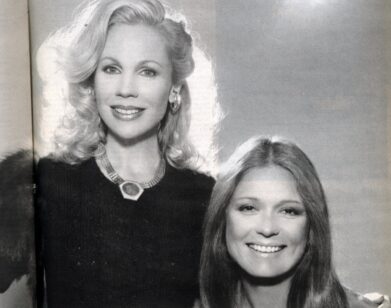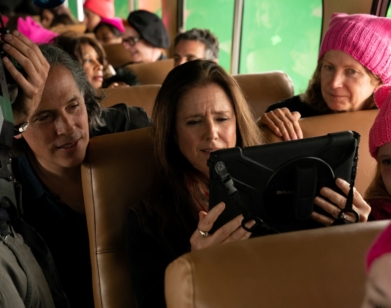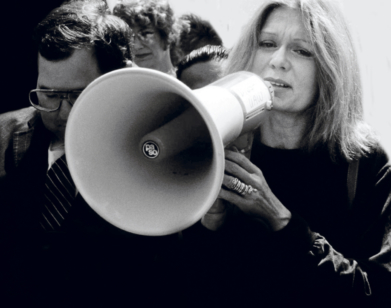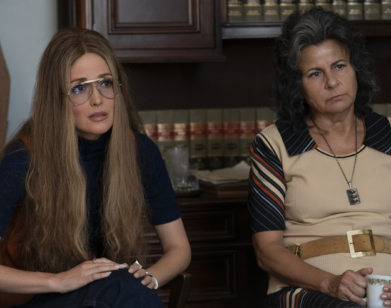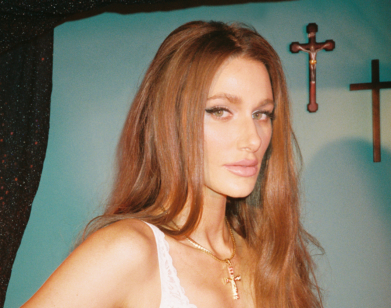Five Things Roxane Gay taught us about reclaiming the female body
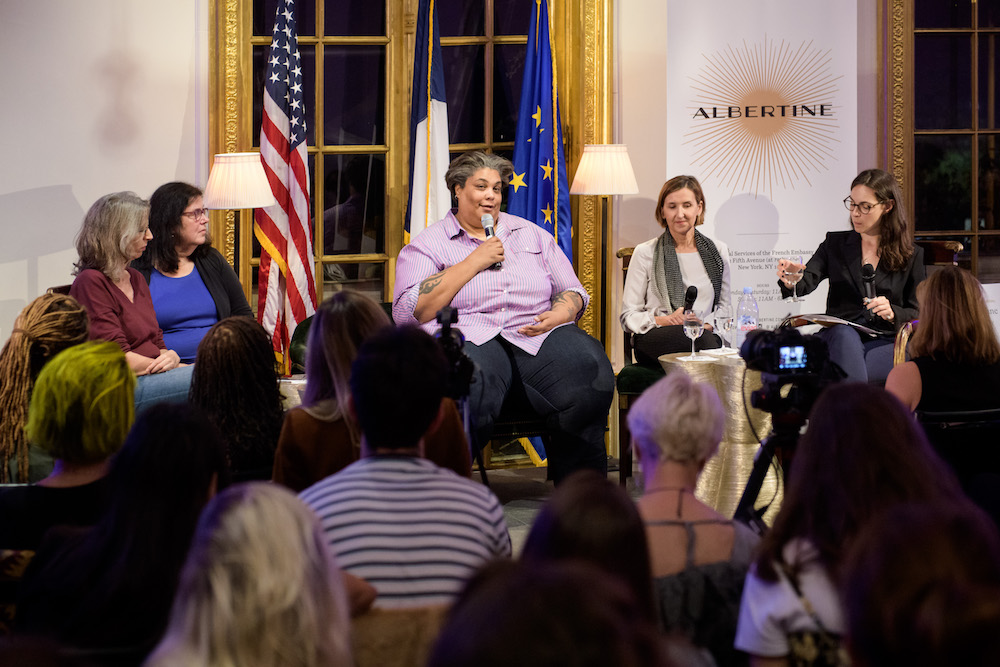
This year’s Albertine Festival was all about the most culturally loaded F-word of our time: feminism. Curated by two of the movements’ most prominent figures, Gloria Steinem and Robin Morgan, the week-long event brought together key figures from both the French and the American fight for female equity, and couldn’t be more relevant given the sociopolitical climate we’ve endured for at least 365 days now (bar 11 serene, Twitter-free minutes).
Last Friday’s event, Body: Image vs. Reality, featured Camille Morineau, the arts director of La Monnaie de Paris, Swiss journalist Mona Chollet, and best-selling writer Roxane Gay in an enlightening discussion on reclaiming the integrity of the female body moderated by the New Yorker’s Alexandra Schwartz. In the interest of passing that enlightenment forward, here are five things we learned from Roxane Gay’s participation.
WE DON’T NEED TO JUSTIFY USING BIRTH CONTROL
ROXANE GAY: The idea of life in France is a utopia where the women are beautiful and they eat cheese all day and wear designer clothes and are magically thin and more evolved. And that’s wonderful. Over here, we’re still fighting for birth control and we’re fighting for the right to say, “I use birth control because I like to have sex.” So many women justify why they use birth control. “I use birth control to control my period,” and this, that and the other thing—I don’t care! Well, my birth control method is foolproof! But if you’re not willing to go down that road, it’s okay to just say I use birth control to have sex. And that’s where we are as a culture, and I think that’s why we idealize European feminism, because we are still so medieval in terms of what we’re struggling for and fighting for.
THE NARRATIVES SURROUNDING FAT BODIES ARE TOO LIMITED
GAY: When we read non-fiction about weight, it’s someone who has lost all of the weight and has figured it out. They’re standing on the cover of their book in half of their formerly fat pants, like, “I’ve done it.” And yeah, I would love to write that book. When I was doing research for Hunger I looked up a bunch of writers who had written that book, and they’d all gained the weight back. I thought it was more necessary to write about the struggle and how difficult it was to maintain weight loss and live life and deal with your baggage, emotionally, and live in a body. I wanted to write about this kind of body. We also see when we’re writing about fat bodies—people write about Lane Bryant fat, which is people who are about a size 26 to a 28 in American sizes. That’s important, but what about people who are above that? We never hear from them unless it’s on one of those horrible television shows like My 600-Ib Life, and, in that case, it’s just like, “Call the ambulance, it’s over.” I wanted to write a counter narrative that you can have an active, fulfilling life and you can struggle with weight and be interested in weight loss, but not have figured it all out, but also not be full of self-loathing. And just to write a complex story of a body.
THE INTERNET IS A DOUBLE-EDGED SWORD FOR REPRESENTATION
GAY: I like what the internet offers: the ability to lead first and to get people interested in your mind, and have a chance if you’re not conventionally attractive. But I also think it democratizes beauty in some ways and reinforces beauty standards in others. As much as there are spaces on the internet that are a free-for-all, a lot of digital spaces, even though they say they’re, for example, body positive, they’re a size 8 … It’s a narrow democracy that’s created. And you can see magazines that are oftentimes very proud of themselves for being diverse in terms of the kinds of bodies they’re displaying, but there’s no diversity at all. There’s an Asian woman and maybe a black woman, and maybe that black woman has natural hair. And all the women are feminine, so we never get to see masculine presenting women and we never get to frame that as beautiful, which it is, and that’s incredibly frustrating, so for every gain or benefit that the internet offers there is a liability.
THE EXPERIENCES OF MEN ARE NOT COMMENSURATE WITH THOSE OF WOMEN
GAY: The societal repercussions for men not adhering to unrealistic beauty standards set forth by Hollywood and fitness magazines are so different. They might get deep in their feelings about it, but they’re still going to find love and they’re still going to be able to go on a TV show and be married to an incredibly hot woman. There are so many fours that are with twelves … in life and in movies and television. So men, no matter what they look like, still find ways of being represented. They still get the cultural cachet of walking down the street freely. They’re like, “Hey, big guy,” and that’s so different from, “Lose weight, cow.” And it doesn’t mean that men don’t face discrimination for being fat—absolutely they do—but it’s just not commensurate to what women face. It’s important to acknowledge that. Until men have plastic surgery at the rate that women have plastic surgery and the way that women just mutilate themselves to adhere to beauty standards—they’re fine. I’m not crying about men.
TRANS BODIES ARE PARAMOUNT TO THE CONVERSATION
GAY: I think that the liberation of women’s bodies has to be the liberation of all bodies. And we cannot talk about liberating women’s bodies without acknowledging and incorporating the issues that trans people face, so I’d like to think the two are intrinsically tied. Many of the issues are very much the same. For many trans people, there is the need to have the outside match the inside—and what kind of outside do you want? Are you going to go for the representations that we’ve seen that have been mass reproduced and are unhealthy, or are you going to go for something different. And if it’s something different, what does that difference look like? So we’re all asking the same questions but we have a lot of work to do of incorporating that and talking about trans bodies in these conversations, because we’re not doing that work—and I include myself when I say we’re not doing that work—as well as we could.
VIEW ALL THE ALBERTINE FESTIVAL PANELS IN FULL HERE.

